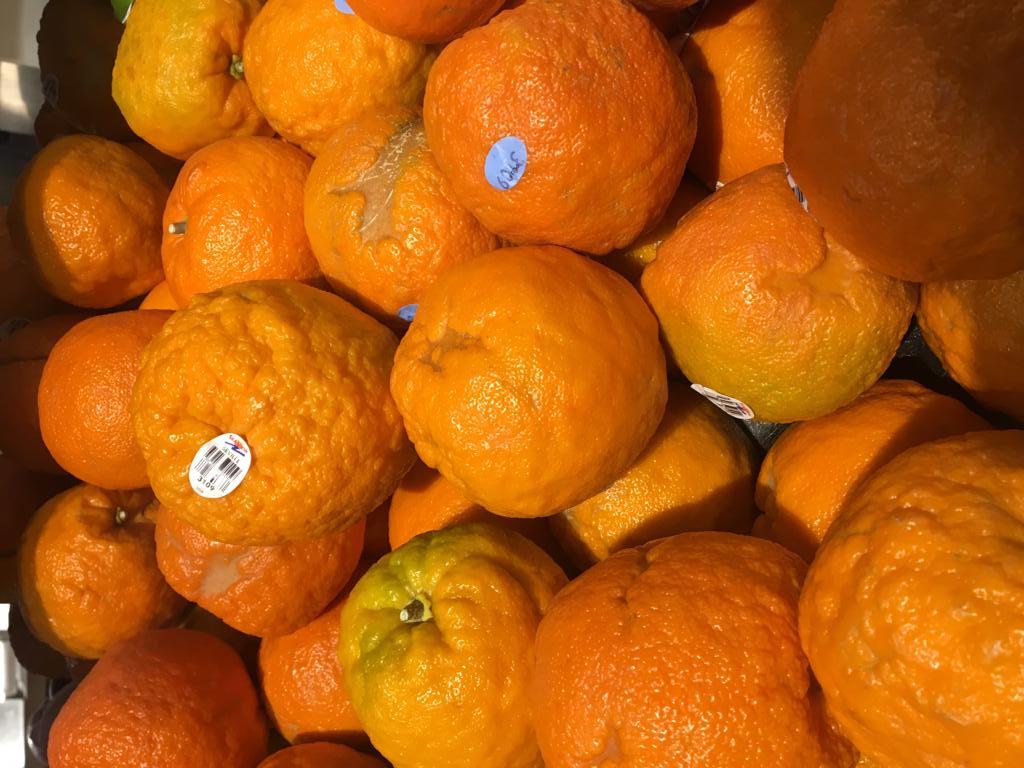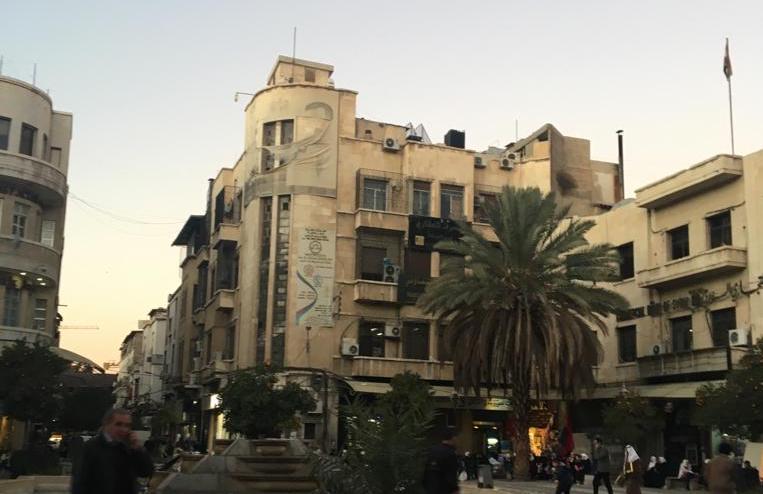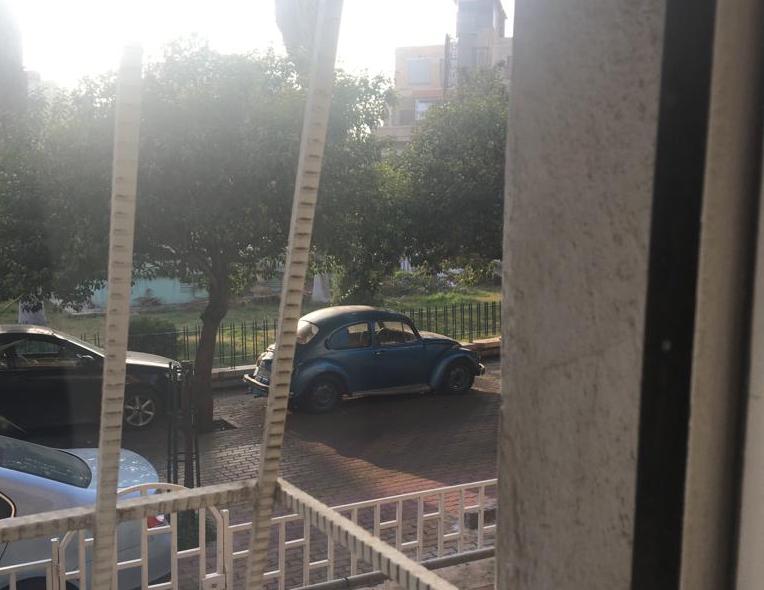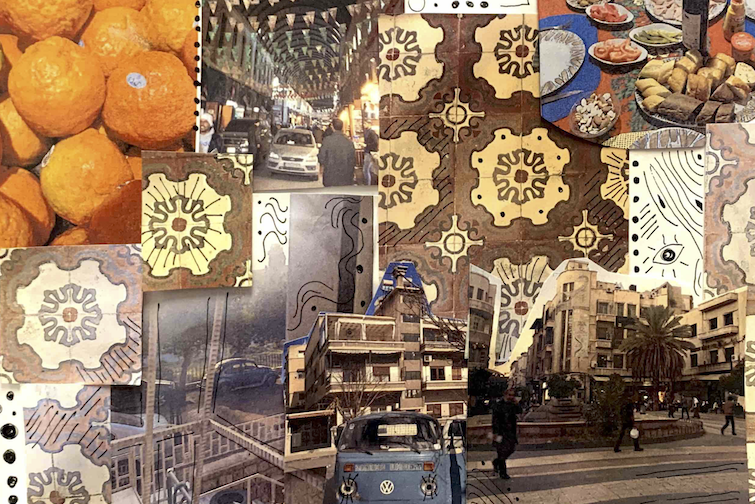The last time I went to Damascus to visit my mother’s family, I was around 12 years old, and although I can’t really remember all the details, there are some memories that have stayed with me. I remember visiting my great aunts at their convent, walking through the old souk, Arabic for marketplace, smelling the narenj trees by my grandparents’ house, and being endlessly captivated by my grandfather’s ever-growing home library—I developed my love for reading in that house. Despite recalling my childhood so fondly, when my mother told me that she booked a flight to visit Damascus for Christmas, I was terrified. I was ready to go home again, but I wasn’t ready to see what home had become—I didn’t want war to tarnish my memories.

After a two-hour drive from Beirut, with a few stops for the bagel-like ka’ak and checkpoints along the way, we finally made it to Damascus. Everything at my grandparents’ house was as I remembered, down to the tree outside their living room window. I even went back to the souk and continued a book I started almost ten years ago.
Things started to change on Christmas day at my mother’s high school reunion. We were all sitting in her friend’s living room, having drinks and laughing, when we heard the sound of fireworks. While fireworks are typical for the holiday season, their frequency was strange: One huge crack every 30 minutes. It wasn’t until I opened Twitter that I realized we were hearing a missile attack. My mother asked me if I was scared, and, though I said no, I was terrified. Even though the missile target was Qatana, around 25 kilometres from the party, I was engulfed in an irrational, growing fear.
When we arrived home, I jokingly told all of my friends of the ordeal. I knew I was safe: The target was nowhere close to me, and my family has been through a lot worse than my brief encounter. But, that’s where the trip’s honeymoon phase ended.
I remember my grandmother asking if I was okay. Though she was used to war by now, she knew that I grew up far removed from it. I was fine, but my memories were shattering around me. All of the images of bitter orange trees, family gatherings eating wara enab, and playing in the park with my cousins replayed in my head for hours on end. I expected that, despite suffering a seven-year-long conflict, Syria was going to be unchanged, just like my childhood. I wasn’t ready to accept the reality of conflict, I kept trying to go back to a time that was over. I realized that I wasn’t ready to let go of my childhood or my memories.

Then I started seeing all of the aspects I had ignored. I started seeing the refugee camps, the long wait times at checkpoints, the closed-down shops, and the rubble. I started seeing the blue signs of the United Nations High Commission for Refugees, the soldiers with assault rifles, and the large stacks of money my mother would use to buy street food because of hyperinflation. Syria had changed, and I wasn’t able to keep up.
I am extremely lucky and grateful to have been sheltered from the realities of the war because I grew up outside of it. Still, my grandparents’ normalization of their situation genuinely shocked me. I have to learn to accept that Syria will never be the same, and going home will not be either. All of my memories will remain fond, but I can’t keep looking to the past, or else I will forget to recognize everything for what it has become. War is out of my control, but enjoying holidays with my grandparents while I still can is not.
As a child of the diaspora, I will always keep a part of Syria with me; I will keep parts in picture frames around my apartment, in conversations with my friends, and in everything that I write. I will never truly leave Syria, even while I am thousands of miles away in Montreal.









